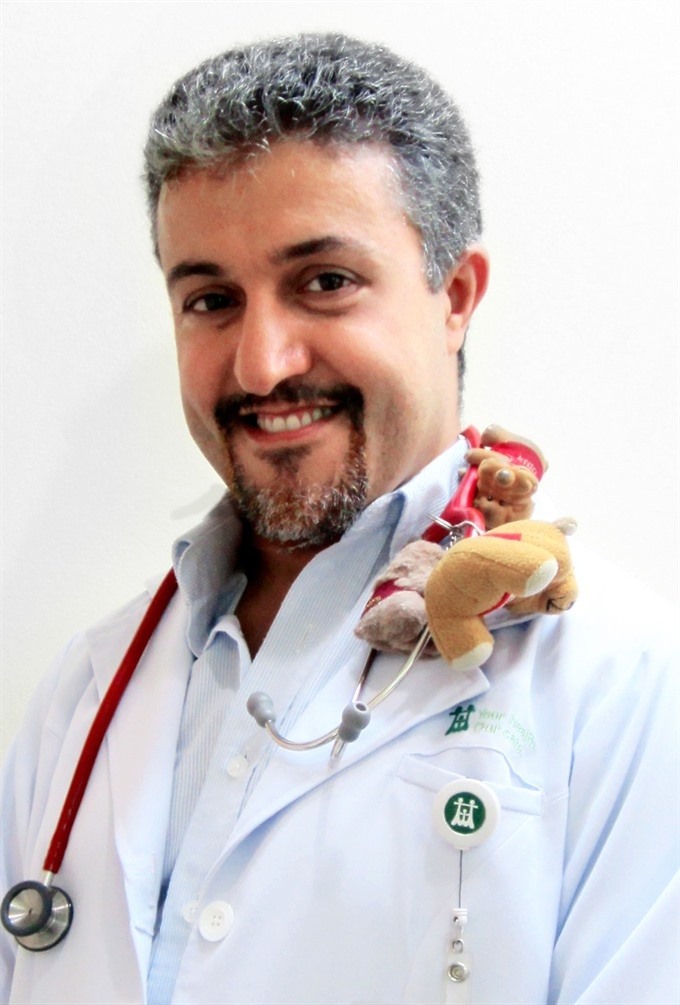 |
| Dr. Jonathan Halevy. — Photo courtesy of Family Medical Practice |
Viet Nam News
By Dr. Jonathan Halevy*
The technological revolution has changed our lives in so many ways. We can travel faster, reach places we never dreamed we could get to, share information and ideas faster than ever before, create tools and machines that change our world, eat more, sit more, invent new medications that will support our decaying sedentary bodies, because we don’t need to work hard anymore. Our world is becoming more and more artificial, virtual and unnatural. Our bodies and minds can’t adjust fast enough to the pace of technology. Our souls have to “bend or break” in order to cope with this fast evolving reality.
We are facing a new generation of children who spend more and more time with screens: Watching TV, Youtube, video games, smartphone applications, chatting online and even studying and preparing homework using laptops and computers. Children spend less time in real relationships with real humans and more time in this “virtual world”.
Our children have thousands of “friends” on social networks that they have never seen, heard or touched before. And they share their most intimate thoughts, feelings and sometimes even pictures of them.
We already knew that spending more time looking at screens results in poor health, obesity, poor vision and poor physical fitness. But we didn’t realise how badly it affects our children’s mental health and psychological wellbeing. Well, now we know.
Last month, a large research was published and its conclusions are very troubling. This study was set to follow over 40,000 children and teenagers aged 2-17 years old, studying their screen time use and psychological wellbeing. It showed that children aged 2-5 spend an average of 2-3 hours a day on screens, while teenagers aged 11-17 spend 4-5 hours a day. Use of more than one hour of screen time daily resulted in children who had difficulty controlling themselves in different situations, would be more likely to react in anger or be emotionally unstable, had difficulty making social connection with friends, had difficulty concentrating, and were at higher risk of developing ADHD, learning and behavioral disorders.
Teenagers 14-17 years old with high use of screens were at high risk of developing depression or anxiety disorders, and were more likely to require psychological or psychiatric support. Over the past decade, teenage suicide attempts have risen by more than 30 per cent, and current and previous studies have shown this is strongly connected to higher use of screen time.
Dear parents, your children need you - now more than ever. They need you to help them battle the addiction to “screens”. Make sure your child is not using any type of screen for more than one hour a day. Babies below 2 years old should not be exposed to screens at all! Encourage them to participate in other better activities (sport, going out and playing with friends, reading) instead of living in the “screen world”. — Family Medical Practice Hanoi
*Dr. Jonathan Halevy, Medical Director of Pediatric Department
Perhaps the most well-known figure at Family Medical Practice thanks to frequently posting pediatric advice on social media, Dr. Jonathan started his journey as a resident at the Pediatric ward of Wolfson medical centre in Israel. His subsequent career largely revolved around the discipline, with various excursions in intensive care and trauma & life support.
A published author on pediatric care, Dr. Jonathan first joined Family Medical Practice in 2005, returning in 2013 following a year rotation at the ICU of Royal Children Hospital in Melbourne. He is frequently invited by the local community to conduct health talks, having addressed many schools and parent groups on pediatric health issues and other medical topics. His Vietnamese-language book Nuoi con sao cho dung on the subject children’s health was released in 2015.
Dr. Jonathan received his degree from the Sackler School of Medicine of Tel Aviv University, and then underwent his residency in the Pediatric Department of the Wolfson Medical Centre in Israel, earning his certification as a specialist in pediatrics. Outside the medical centre, he is a keen sportsman and dance lover.
For more advice on any medical topics, visit Family Medical Practice Hanoi at: 298 I Kim Ma Street, Ba Dinh District. Tel: (024) 3843 0748. E: hanoi@vietnammedicalpractice.com or http://www.vietnammedicalpractice.com.
FMP’s downtown HCM City location is: Diamond Plaza, 34 Le Duan Street, District 1; 95 Thao Dien Street, District 2. Tel: (028) 3822 7848. E: hcmc@vietnammedicalpractice.com.
FMP Dà Nãng is located at 96-98 Nguyen Van Linh Street, Hai Chau District. Tel: (0236) 3582 699. E: danang@vietnammedicalpractice.com.